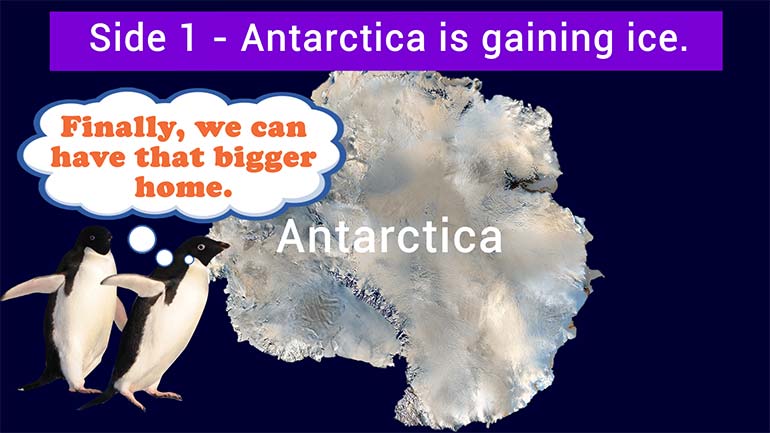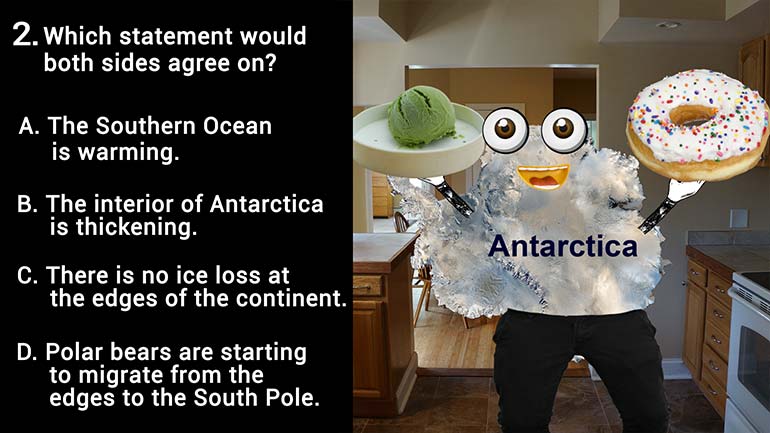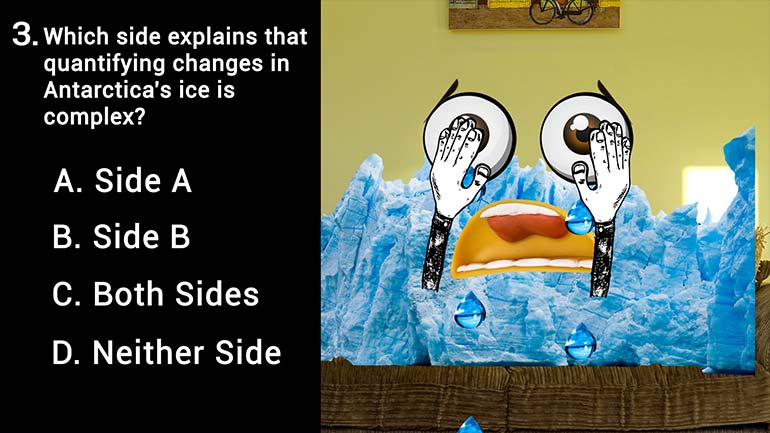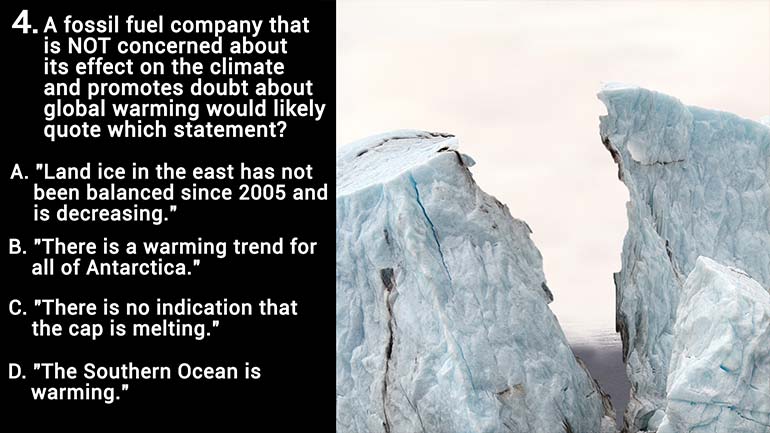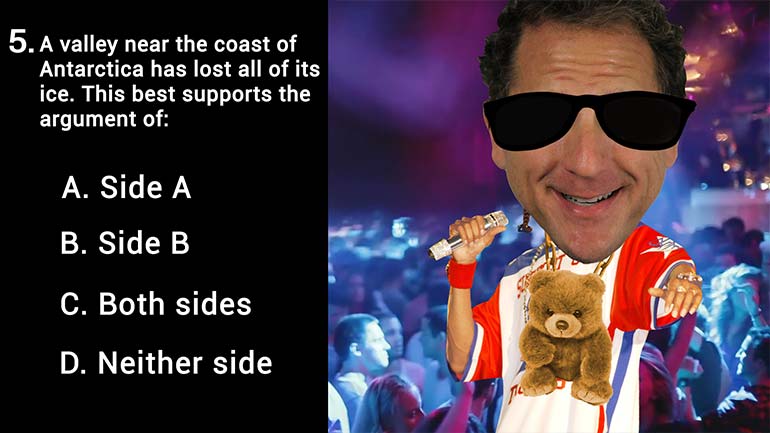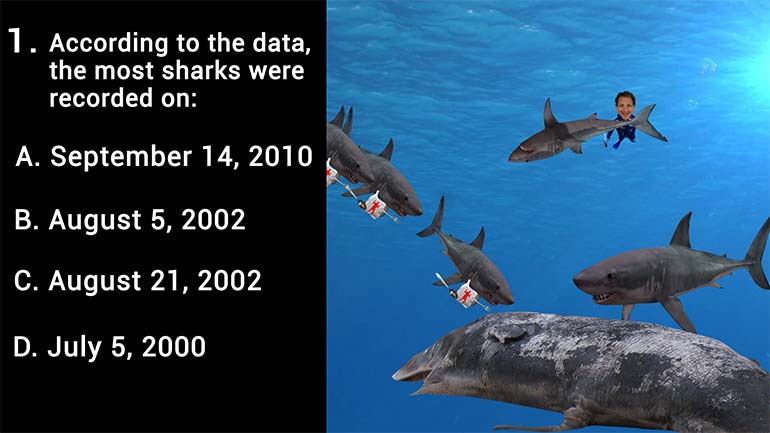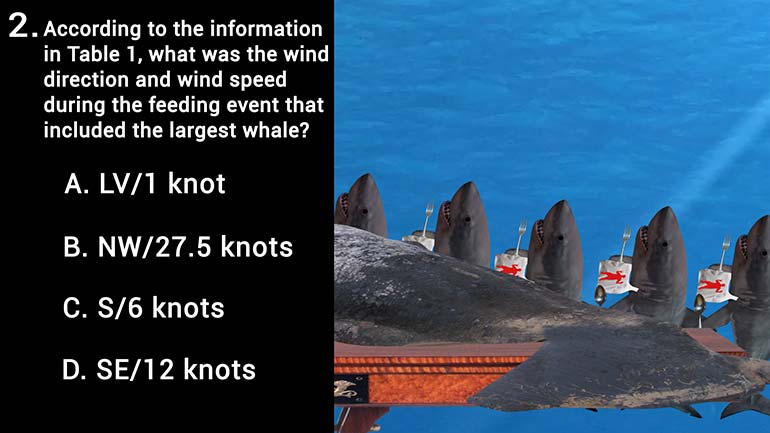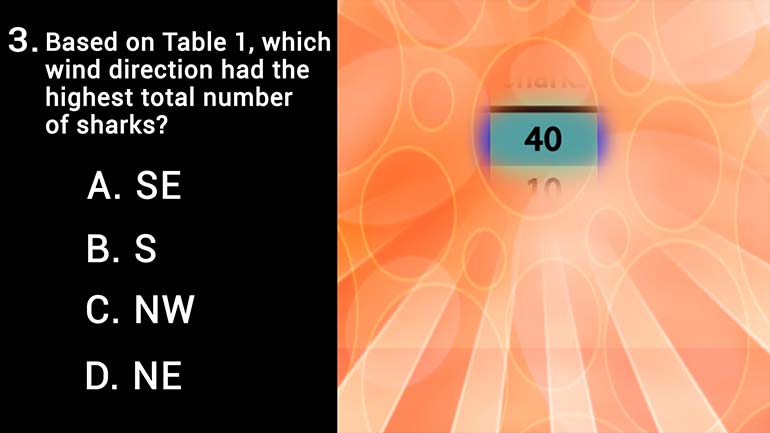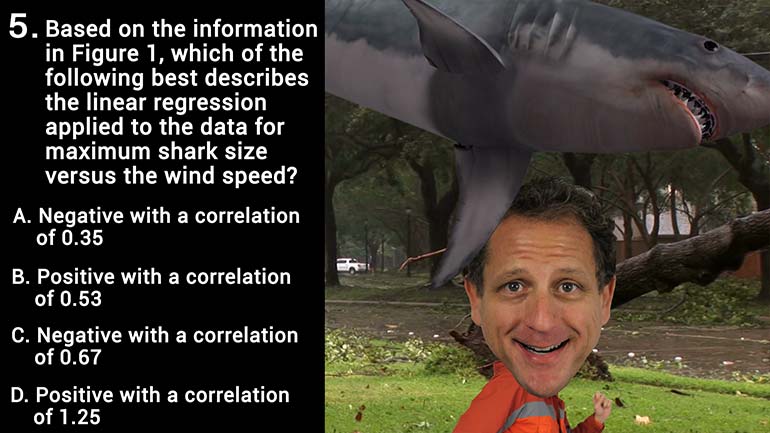ShmoopTube
Where Monty Python meets your 10th grade teacher.
Search Thousands of Shmoop Videos
Conflicting Viewpoints Videos 15 videos
Which of the following would both scientists agree on?
Which of the following health effects did Scientist 1 NOT mention?
Which of the following would best convince Scientist 2 to re-examine Scientist 1's work?
ACT Aspire Science: Who Said It Best? 0 Views
Share It!
Description:
Which scientist might call the spiral objects "islands of stars"?
Transcript
- 00:00
Yeah Oh okay Future scientists this is the last section
- 00:07
Got five more questions for you And here's our little
- 00:10
passage because you know the way that way studying our
- 00:23
place in the universe can be downright humbling Yeah scientists
- 00:27
have pondered just how big the universe is for ages
Full Transcript
- 00:30
Some have argued that the entire universe is in what
- 00:33
we call the Milky Way including spiral object like the
- 00:37
Andromeda galaxy Other scientists have argued that great distances separate
- 00:42
the observed spiral objects But here we go Question one
- 00:46
of the group which scientist might call the spiral objects
- 00:50
Islands of stars Oh All right We'll think about this
- 00:57
from reading the claims made by scientists who we know
- 01:00
that since nobody are observed in both Milky Way and
- 01:04
the spirals while the spirals must be composed of stars
- 01:07
Scientist One claims that the spirals are part of the
- 01:09
Milky Way not isolated systems and most relevantly not made
- 01:14
of stars So this scientist would not call them islands
- 01:18
of stars He or she would more likely call them
- 01:22
islands of space dust or something like that Islands of
- 01:26
swirling bodies that are yet to be properly identified or
- 01:31
islands have dirt on your telescope So maybe clean it
- 01:34
every once in a while there Bob you know we're
- 01:36
looking at you but we'll definitely not islands of stars
- 01:40
So the answer is B scientists do
Related Videos
According to the data, the most sharks were recorded on:
According to the information in Table 1, what was the wind direction and wind speed during the feeding event that included the largest whale?
Based on Table 1, which wind direction had the highest total number of sharks?
According to the information in Figure 1, what is the maximum shark size for a wind speed of ~18 knots?
Based on the information in Figure 1, which of the following best describes the linear regression applied to the data for maximum shark size versus...





